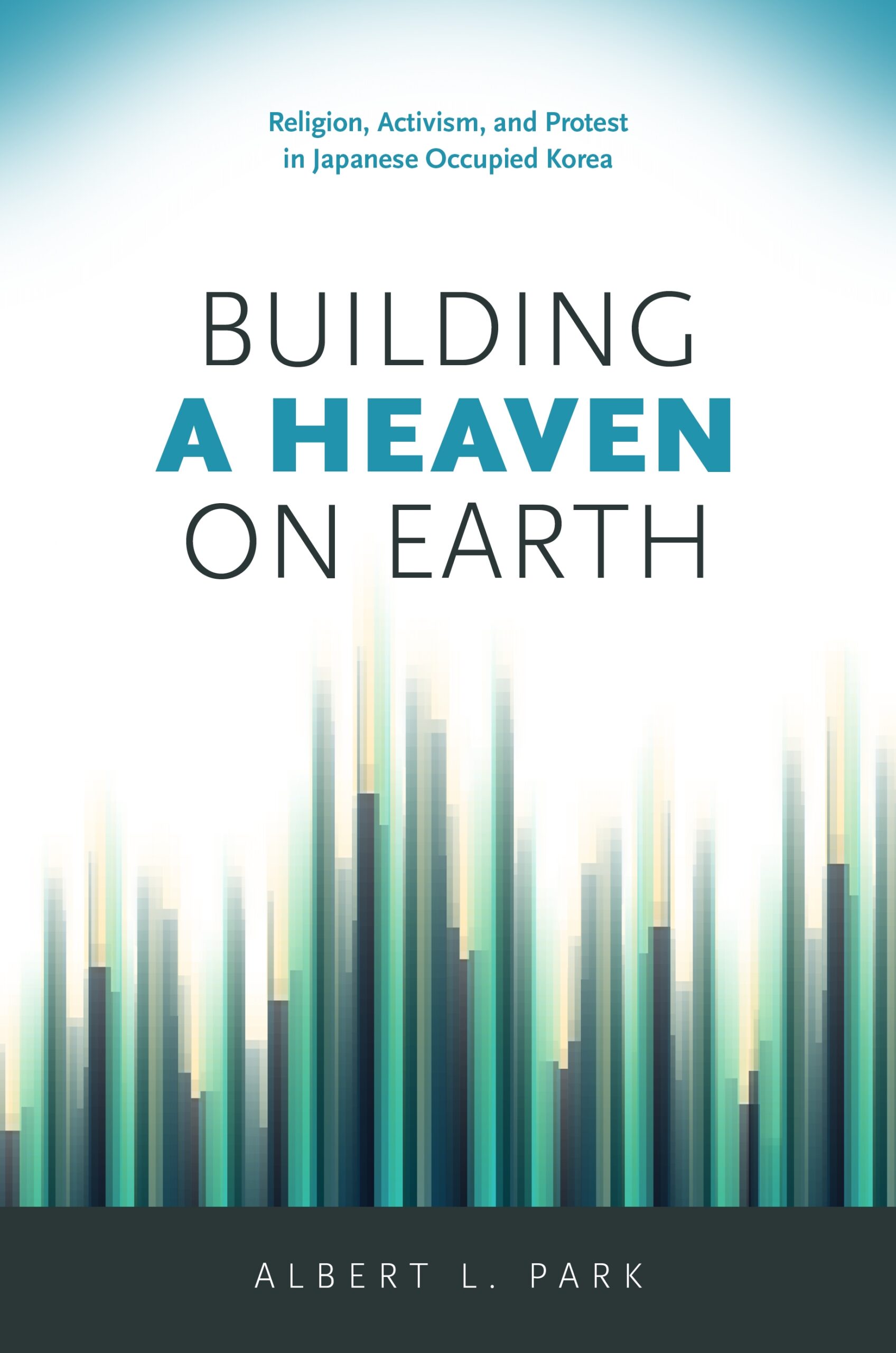Building a Heaven on Earth: Religion, Activism, and Protest in Japanese Occupied Korea
On Sale!- About the Book
-
Why and how did Korean religious groups respond to growing rural poverty, social dislocation, and the corrosion of culture caused by forces of modernization under strict Japanese colonial rule (1910–1945)? Questions about religion’s relationship and response to capitalism, industrialization, urbanization, and secularization lie at the heart of understanding the intersection between colonialism, religion, and modernity in Korea. Yet, getting answers to these questions has been a challenge because of narrow historical investigations that fail to study religious processes in relation to political, economic, social, and cultural developments. In Building a Heaven on Earth, Albert L. Park studies the progressive drives by religious groups to contest standard conceptions of modernity and forge a heavenly kingdom on the Korean peninsula to relieve people from fierce ruptures in their everyday lives. The results of his study will reconfigure the debates on colonial modernity, the origins of faith-based social activism in Korea, and the role of religion in a modern world.
Building a Heaven on Earth, in particular, presents a compelling story about the determination of the Young Men’s Christian Association (YMCA), the Presbyterian Church, and the Ch’ŏndogyo to carry out large-scale rural movements to form a paradise on earth anchored in religion, agriculture, and a pastoral life. It is a transnational story of leaders from these three groups leaning on ideas and systems from countries, such as Denmark, France, Japan, and the United States, to help them reform political, economic, social, and cultural structures in colonial Korea. This book shows that these religious institutions provided discursive and material frameworks that allowed for an alternative form of modernity that featured new forms of agency, social organization, and the nation. In so doing, Building a Heaven on Earth repositions our understandings of modern Korean history.
- About the Author(s)
-
Albert L. Park, Author
Albert L. Park is associate professor of history at Claremont McKenna College.
- Reviews and Endorsements
-
- Albert Park’s Building A Heaven on Earth is a welcome addition to scholars’ intensifying call for a modern Korean historiography that moves beyond modernist- (including Marxist) and nationalist-centered approaches. . . . Anyone working on modernity and religion, Korean religions in colonial Korea, and modern Korean (intellectual) history will benefit tremendously from Park’s tour de force.
—Journal of Korean Religions - Theoretically apt and drawing on a vast array of sources, Park offers a perceptive historical study that will be well appreciated by any student of Korean religions and global Christianity.
—Religious Studies Review - The author of this book has written an informative and insightful work on the multifarious ways that Korean religious organizations helped rural farmers respond to modernization during the 1920s and 1930s, a time when Japan held colonial control over the peninsula. . . . this book makes a worthy addition to those who have research interests on colonialism, religion, and modernity.
—Historian - Albert Park has written an informative book about previously neglected religious social movements that focused on the majority of Koreans where they lived, namely peasant agriculturalists who lived in the countryside. . . . Building a Heaven on Earth is a welcome addition that better helps us to understand the place of religion and social movements in colonial Korea.
—Seoul Journal of Korean Studies - Park’s book is a much-needed intervention in the study of modern East Asian history and serves as a model for how the East Asian history field can locate itself within global history.
—Choice - Author Park examines the Korean countryside during the Japanese colonial occupation. Korea at that while the world was in the midst of the Great Depression, and the world was under aggressive imperialism from Russia, Germany and Japan.
—Korean Quarterly - Albert Park has written a concise, well-judged, and deeply informed analysis of two central problems of the Korean political economy during the Great Depression: the agrarian mise-en-scène of high tenancy and general impoverishment; and the global anarchy of a world economy that had fallen apart, with no one knowing how to put it back together again. Professor Park examines the first problem through a remarkable comparative set of proposals for agrarian reform based, against one’s expectations, on Denmark’s experience. He examines the second problem through innovative and original ideas about a ‘new (Christian) world order’ that several Korean theologians advanced. Throughout the book he locates these projects in a wide range of debate about agrarian conditions and land reform in the interwar period. This has led him to read widely in classic literature from Karl Polanyi, Barrington Moore, R. H. Tawney, and many others, giving this fine book a firm and lasting foundation.
—Bruce Cumings, professor of history at the University of Chicago and author of Korea’s Place in the Sun: A Modern History - Written from a resolutely transnational and comparative perspective, this masterfully researched, theoretically sophisticated, and compellingly written work offers many insights into the complex and globally mediated intersections among religion, modernity, and nationalism in colonial Korea. In this pioneering book, Albert Park focuses on the rurally based movements of the YMCA, the Presbyterian Church, and Ch’ŏngdogyo, to show how these three different yet comparable religious movements challenged normative understandings of capitalist modernity—and laid the foundations for faith-based social activism in the postliberation years—while producing an alternative vision of modernity which valorized religion, agricultural work, communalism, and the pastoral life. This book should be read by a wide and diverse audience, both inside and outside of Korean and East Asian studies.
—Takashi Fujitani, University of Toronto
- Albert Park’s Building A Heaven on Earth is a welcome addition to scholars’ intensifying call for a modern Korean historiography that moves beyond modernist- (including Marxist) and nationalist-centered approaches. . . . Anyone working on modernity and religion, Korean religions in colonial Korea, and modern Korean (intellectual) history will benefit tremendously from Park’s tour de force.
- Supporting Resources
-





